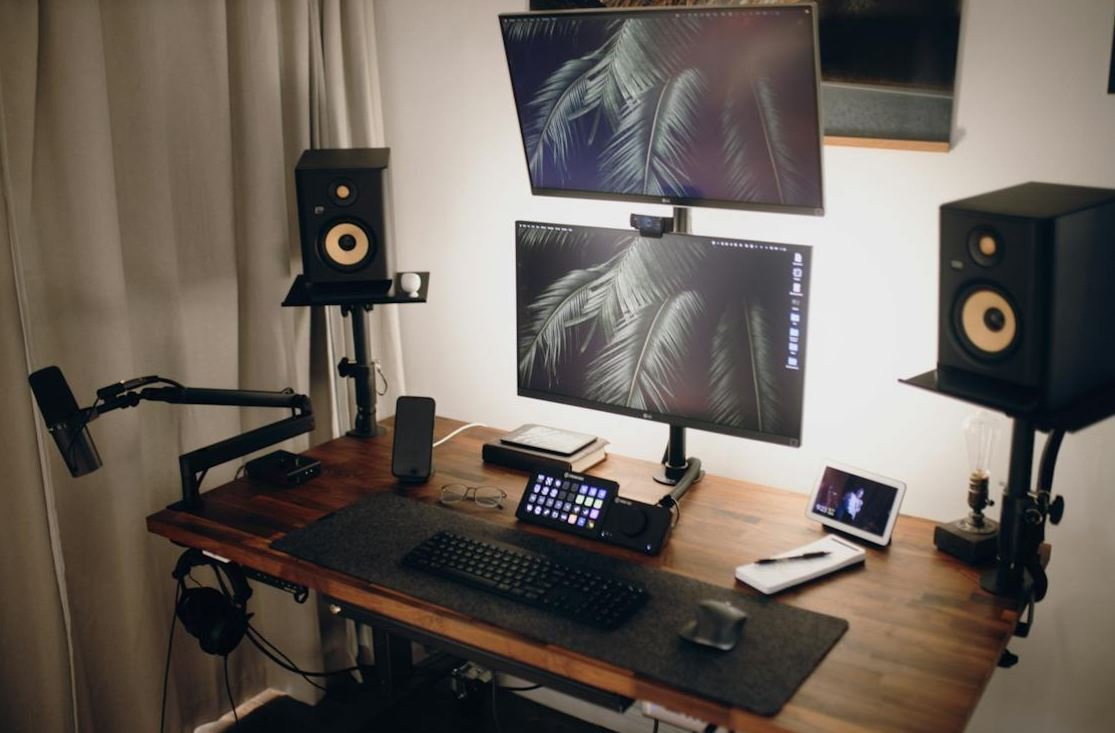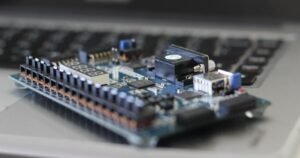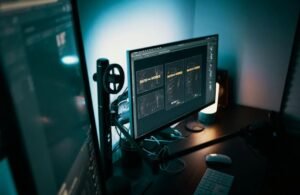Are AI Generated Images Copyrighted?
In recent years, artificial intelligence (AI) has made significant advancements in the field of image generation. AI-generated images are becoming more sophisticated and realistic, leading to growing concerns about copyright ownership and intellectual property rights. This article explores the question: Are AI-generated images copyrighted?
Key Takeaways:
- AI-generated images can be copyrighted under certain conditions.
- The originality and creativity of the AI-generated image are key factors in determining copyrightability.
- Ownership of AI-generated images can be complex when AI is trained on copyrighted materials.
AI-generated images are created using complex algorithms and neural networks that learn from existing visual data. These algorithms analyze vast amounts of images to learn patterns, styles, and features, allowing them to generate new images based on the acquired knowledge. While the AI system itself may not possess creativity in the same way as a human artist, the output it produces can often be indistinguishable from human-created images.
An interesting aspect of AI-generated images is that they can blend multiple styles or incorporate unique elements that differ from the original training dataset. This ability to combine different influences leads to the creation of novel and visually striking images that may not have otherwise been conceived.
Copyright and AI-generated Images
The copyright law usually grants the creator of an original work the exclusive rights to reproduce, distribute, and display their creation. However, when it comes to AI-generated images, the question of creatorship becomes complicated. In many jurisdictions, copyright is only granted to works created by a human author.
Nonetheless, AI-generated images may still be protected by copyright if they meet the criteria of originality and creativity. For example, if an AI system generates an image that possesses a sufficient level of uniqueness, innovation, and reflects human-like creativity, it may be eligible for copyright protection.
An intriguing notion is that ownership of AI-generated images becomes even more complex when the AI is trained on copyrighted materials. For instance, if the AI has learned from a dataset consisting of copyrighted photographs, the resulting AI-generated images might unintentionally contain copyrighted elements.
Creativity and Originality
The key element in determining if an AI-generated image is copyrightable is the level of creativity and originality it exhibits. A purely mechanical reproduction or replication of existing works would likely not meet the threshold of originality required for copyright protection.
However, when the AI system generates something new, innovative, and unique, it can be argued that the resulting image is a new creation deserving of copyright protection. The creativity aspect lies in the manner in which the AI system combines and generates visual elements, resulting in an output that is distinct from its training data.
The Fair Use Doctrine
The fair use doctrine, a legal exception to copyright law, allows for the limited use of copyrighted materials without permission for purposes such as commentary, criticism, teaching, and news reporting. It is crucial to consider whether the use of AI-generated images falls under fair use.
An interesting observation is that the fair use doctrine may be applied differently when AI-generated images are involved. Courts may analyze factors such as the amount of human intervention in the AI’s creative process and the transformative nature of the use to determine if fair use applies.
Conclusion
In summary, the copyrightability of AI-generated images depends on the level of creativity, originality, and uniqueness they exhibit. While AI systems themselves may not be recognized as legal creators, the resulting images they generate may still be eligible for copyright protection. The issue becomes more complex when AI is trained on copyrighted materials, potentially leading to unintentional infringement. As AI technology continues to advance, the legal framework surrounding copyright and AI-generated images will require ongoing adaptation and careful consideration.

Common Misconceptions
Misconception 1: AI Generated Images are Automatically Copyrighted
One common misconception is that all AI generated images are automatically copyrighted. However, this is not the case. The creator of the AI model or the person who trains the AI does not automatically own the copyright to the images produced. Instead, copyright laws typically grant the copyright to the person who created the content, meaning that the AI-generated images would be copyright protected by the person who owns the AI model.
- AI generated images do not automatically receive copyright protection.
- The copyright typically belongs to the person who owns the AI model.
- Training an AI model does not automatically grant copyright to the trainer.
Misconception 2: AI Generated Images are Always in the Public Domain
Another misconception is that all AI generated images are automatically in the public domain. While AI generated images lack human creators, which is one of the requirements for copyright protection in many jurisdictions, this does not automatically place them in the public domain. Public domain status can only be achieved if the creator intentionally waives their rights or if the copyright has expired. AI generated images can still be protected by other forms of intellectual property rights, such as database rights or trade secret laws.
- AI generated images are not automatically in the public domain.
- Public domain status requires intentional waiver or expired copyright.
- AI generated images may be protected by other forms of intellectual property rights.
Misconception 3: AI Generated Images Can Be Freely Used
One misconception is that AI generated images can be freely used without any restrictions. While it may be true that some AI generated images are openly licensed or explicitly made available for certain uses without restrictions, this is not universally applicable. The copyright owner of the AI model used to generate the images still has the right to apply restrictions on how the images are used and distributed.
- Not all AI generated images can be freely used without restrictions.
- Certain images may have specific licenses and permitted uses.
- The copyright owner of the AI model can apply restrictions on image usage.
Misconception 4: AI Generated Images Can’t Infringe Copyright
Some people believe that AI generated images cannot infringe copyright laws because they are created by a machine. However, the responsibility for copyright infringement can fall on the person who owns the AI model or trained the AI. If the AI model is trained on copyrighted images without permission or if the AI is used to create images that infringe on someone else’s copyright, legal consequences can still arise.
- AI generated images can be subject to copyright infringement.
- The person who owns the AI model or trained the AI can be held responsible for copyright infringement.
- Using copyrighted material in AI training without permission can lead to legal consequences.
Misconception 5: AI Generated Images Can’t be Registered for Copyright
Another common misconception is that AI generated images cannot be registered for copyright. However, in some jurisdictions, AI generated images may be eligible for copyright registration. As long as they meet the required criteria for copyright protection, such as originality and fixation in a tangible medium, they can be registered just like any other creative work. The key is that the copyright applicant would need to be the person who owns the rights to the AI model or the AI-trained creator, not the AI itself.
- AI generated images can be eligible for copyright registration in some jurisdictions.
- Meeting the required criteria for copyright protection is essential.
- The copyright applicant should be the person who owns the AI model or the AI-trained creator.

Introduction
In recent years, the rise of Artificial Intelligence (AI) has spurred numerous advancements in various fields. One of the fascinating applications of AI is the generation of images. AI-generated images have been widely used in art, design, and advertising. However, a question that arises is whether these images are copyrighted. This article delves into this query by exploring ten thought-provoking aspects of AI-generated images.
Table: Comparing AI-Generated and Human-Created Images
Before delving into the copyright issue, let’s compare AI-generated images with human-created images:
| AI-Generated Images | Human-Created Images | |
|---|---|---|
| Quantity | AI can generate images at a rapid pace. | Human-created images require more time and effort. |
| Originality | AI can produce novel and imaginative designs. | Human-created images showcase creativity and unique perspectives. |
| Consistency | AI-generated images can follow specific styles consistently. | Human artists’ styles may change over time or vary between projects. |
Table: Advantages and Disadvantages of AI-Generated Images
Now, let’s explore the advantages and disadvantages of AI-generated images:
| Advantages | Disadvantages |
|---|---|
| High speed of production | Lack of human touch or emotions |
| Potential for unique designs | Difficulty in capturing complex human emotions |
| Ability to mimic various artistic styles | Possibility of producing low-quality or repetitive images |
Table: Understanding Copyright and AI-Generated Images
In order to comprehend the copyright implications of AI-generated images, let’s explore the following aspects:
| AI-Generated Images | Human-Created Images | |
|---|---|---|
| Originality | AI algorithms inherently lack original thought, raising questions about individual authorship. | Human artists express their creativity, making them the clear authors. |
| Legal Ownership | The legal ownership of AI-generated images is often attributed to the creator or owner of the AI system. | Human creators hold legal ownership of their images. |
| Derivative Works | AI algorithms can remix and modify existing images, potentially infringing on copyright. | Human creators may create derivative works, but they fall under the original copyright. |
Table: Impact of AI-Generated Images on the Art Market
The presence of AI-generated images has notable effects on the art market. Let’s explore some key impacts:
| AI-Generated Images | Human-Created Images | |
|---|---|---|
| Artistic Value | AI-generated images challenge the concept of traditional artistic value. | Human-created images retain the value associated with skilled craftsmanship. |
| Market Demand | The emergence of AI-generated art has created a new demand for unique digital creations. | The art market maintains its demand for traditional paintings, sculptures, and other physical artforms. |
| Accessibility and Reproducibility | AI-generated images can be reproduced indefinitely with minimal effort. | Human-created images remain unique, limited by the artist’s production capacity. |
Table: Legal Perspectives on AI-Generated Image Copyright
Legal experts share a variety of perspectives on the copyright status of AI-generated images:
| AI-Generated Images | Human-Created Images | |
|---|---|---|
| Judicial View | Courts are yet to provide a definitive ruling on the copyright status of AI-generated images. | Judicial decisions are made based on existing copyright laws. |
| Intellectual Property Law | Intellectual property laws need to evolve to encompass AI-generated works. | Existing intellectual property laws generally protect human-created works. |
| International Legislation | International cooperation is required to establish unified regulations regarding AI-generated images. | Nation-specific copyright laws can protect human-created images. |
Table: Potential Solutions for AI-Generated Image Copyright
Now, let’s explore potential solutions or considerations regarding AI-generated image copyright:
| AI-Generated Images | Human-Created Images | |
|---|---|---|
| AI Ownership | AI-generated images could be considered as intellectual property belonging to the AI system’s creators or owners. | Human creators retain their intellectual property rights. |
| License and Attribution | AI-generated images could be subject to specific licensing and attribution requirements. | Human-created images are often protected by licenses and require proper attribution. |
| Educational Awareness | More education and awareness are necessary to ensure proper understanding and handling of AI-generated image copyright. | Artists are knowledgeable about intellectual property rights and copyright issues. |
Table: Ethical Considerations of AI-Generated Images
Lastly, let’s delve into ethical considerations related to AI-generated images:
| Considerations |
|---|
| Authenticity and Misrepresentation |
| Unintended Bias and Discrimination |
| Ownership and Exploitation |
Conclusion
The rapid growth of AI-generated images has brought forth numerous legal, artistic, and ethical discoveries. As the copyright implications of AI-generated images remain a topic of debate, it is crucial to continuously adapt copyright laws to address this evolving landscape. Promoting awareness and encouraging discussions among legal experts, artists, and AI developers will contribute to the development of fair and equitable solutions in this domain.
Frequently Asked Questions
Are AI Generated Images Copyrighted?
AI generated images are generally considered to be copyrightable as they are original works created by an AI algorithm. However, the copyright ownership of AI generated images can be complex, involving the contributions of both the AI algorithm creator and the user who may have provided inputs or guidance to the algorithm. It is advised to consult with legal professionals to understand the specific copyright implications of AI generated images.
What is an AI-generated image?
An AI-generated image is an image that has been created or modified using artificial intelligence algorithms. These algorithms can generate images from scratch or alter existing images based on certain parameters or inputs. AI-generated images can range from realistic photographs to abstract artworks, depending on the capabilities of the AI algorithm and the desired outcome.
Can AI-generated images be protected by copyright?
Yes, AI-generated images can typically be protected by copyright, as they are considered original works of authorship. However, the copyright ownership and the extent of protection may vary depending on the jurisdiction and the specific circumstances surrounding the creation of the AI-generated image.
Who owns the copyright for AI-generated images?
The ownership of copyright for AI-generated images can be complex and may involve multiple parties. In some jurisdictions, the copyright may primarily belong to the creator or developer of the AI algorithm. However, if a user provides inputs, guidance, or creative direction to the AI algorithm, they may also have a claim to the copyright. It is important to consult legal professionals to determine the specific copyright ownership of AI-generated images in each specific case.
Can AI-generated images infringe on copyright?
AI-generated images can potentially infringe on copyright if they incorporate copyrighted material without proper authorization or if they closely resemble existing copyrighted works. Since AI algorithms can be trained on vast amounts of copyrighted content, there is a risk that the generated images may unintentionally resemble or incorporate copyrighted elements. To avoid copyright infringement, it is advised to ensure that the AI algorithm used for generating images has been appropriately trained and designed to avoid such issues.
How can I protect my AI-generated images from copyright infringement?
To protect your AI-generated images from copyright infringement, it is recommended to properly acknowledge and respect copyright laws. This can involve obtaining necessary licenses or permissions for copyrighted content that may be used as input or reference for the AI algorithm. Additionally, you can seek legal advice to ensure that the AI algorithm used for generating images is designed in a way that minimizes the likelihood of infringing on existing copyrights.
Can AI-generated images be considered fair use?
Whether an AI-generated image can be considered fair use depends on several factors, including the purpose and nature of the use, the amount and substantiality of the copyrighted material used, and the effect of the use on the potential market for the copyrighted work. Each fair use determination is subjective and depends on the specific circumstances. It is advisable to consult with legal professionals to assess the fair use potential of AI-generated images in individual cases.
Can AI-generated images be used commercially without permission?
Using AI-generated images commercially without permission can potentially lead to copyright infringement. Commercial use often involves exploiting the originality and creativity of an image, which is protected by copyright. It is important to seek proper authorization or licensing from the relevant copyright holders, or ensure that the AI algorithm and the generated images do not rely heavily on copyrighted material.
What legal implications are associated with AI-generated images?
The legal implications associated with AI-generated images can include copyright ownership disputes, potential copyright infringement, fair use considerations, and issues related to privacy and data protection. The complex nature of AI algorithms and their ability to create or modify images autonomously can raise legal questions and challenges. Understanding these implications is crucial for both creators and users of AI-generated images to navigate and comply with relevant legal frameworks and regulations.
Where can I find more information about copyright and AI-generated images?
For more information about copyright and AI-generated images, it is recommended to consult legal professionals specializing in intellectual property law. They can provide tailored guidance and advice based on the specific jurisdiction and circumstances. Additionally, researching relevant copyright laws and regulations in your specific country or region can help in understanding the legal framework surrounding AI-generated images.




